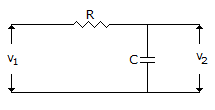Discussion
Home ‣ Electronics and Communication Engineering ‣ Signals and Systems See What Others Are Saying!
- Question
A box has 4 white and 3 red balls. Two balls are taken out in succession. What is the probability that both are white?
Options- A.

- B.

- C.

- D.

- Correct Answer

ExplanationThe probability that first ball is white is and the probability the second ball is white is
and the probability the second ball is white is  . The probability that both are white is
. The probability that both are white is  .
.
More questions
- 1. The most important primary force of attraction in the formation of solids is
Options- A. electromagnetic
- B. electrostatic
- C. quantum-electrostatic
- D. quantum electromagnetic Discuss
Correct Answer: electrostatic
- 2. In a stop-and-wait ARQ system, the transmitting terminal
Options- A. waits for positive or negative acknowled-gement from the receiving terminal after sending a block
- B. sends another block if positive acknowledge is received through ACK character
- C. resends the previous block if negative acknowledgement is received through a NAK character
- D. does not wait for acknowledgement after sending a block Discuss
Correct Answer: does not wait for acknowledgement after sending a block
- 3. In a bipolar transistor the barrier potential
Options- A. 0
- B. a total of 0.7 V
- C. 0.7 V across each depletion layer
- D. 0.35 V Discuss
Correct Answer: 0.7 V across each depletion layer
Explanation:
Since there are two p-n junctions, there are two depletion layers and 0.7 V across each layer.- 4. Induction heating systems require low frequency inverters.
Options- A. True
- B. False Discuss
Correct Answer: False
Explanation:
It uses high frequency inverter.- 5. An electron for which l = 0 has zero orbital magnetic dipole moment.
Options- A. True
- B. False Discuss
Correct Answer: True
- 6. A single phase full converter can operate in
Options- A. 4 quadrants
- B. 3 quadrants
- C. 2 quadrants
- D. 1 quadrant Discuss
Correct Answer: 2 quadrants
- 7. For the circuit in the given figure, V2(s)/V1(s) =

Options- A.

- B.

- C.

- D.
 Discuss
Discuss
Correct Answer:
Explanation:
 .
.
- 8. A single phase step up cycloconverter changes 50 Hz to 100 Hz. Then one half wave of input will give rise to
Options- A. one half wave of output
- B. one full wave of output
- C. two full waves of output
- D. either (b) or (c) Discuss
Correct Answer: one full wave of output
Explanation:
Since output frequency is 2f, one half wave of input must equal one full wave of output.- 9. Which of the following is true about an impulse voltage?
Options- A. It is a unidirectional voltage
- B. Chopped impulse flashover does not occur
- C. Time taken to rise is equal to time taken to fall
- D. RMS value is always less than 50% of average value Discuss
Correct Answer: It is a unidirectional voltage
Explanation:
Impulse is unidirectional (either positive or negative).- 10. 8085 has 6 sign flags.
Options- A. True
- B. False Discuss
Correct Answer: False
Explanation:
It has one sign flag S.
Comments
There are no comments.
More in Electronics and Communication Engineering:
Programming
Copyright ©CuriousTab. All rights reserved.
